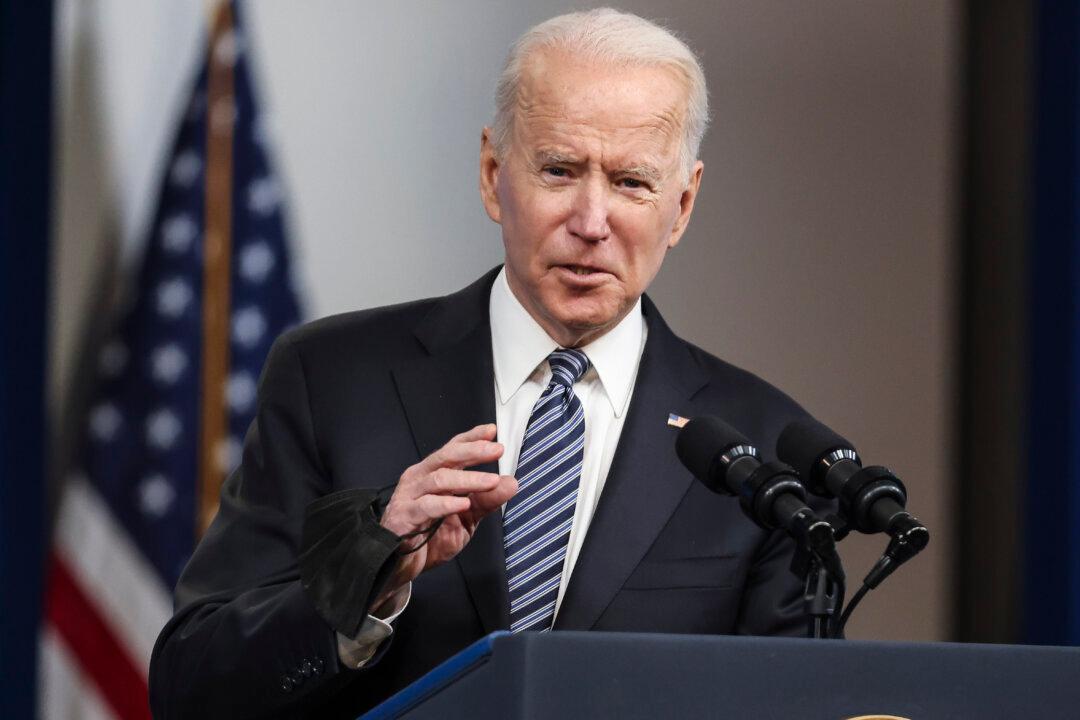President Joe Biden said that as the Colonial Pipeline is coming back online following a ransomware attack last week, Americans shouldn’t panic-buy and hoard fuel, although he cautioned that shortages might continue in the near future.
“Fuel is beginning to flow to a majority of the markets that they service, and they should be reaching full operational capacity as we speak,” he said at the White House on May 13, but noted that “we will not feel the effects at the pump immediately.”





